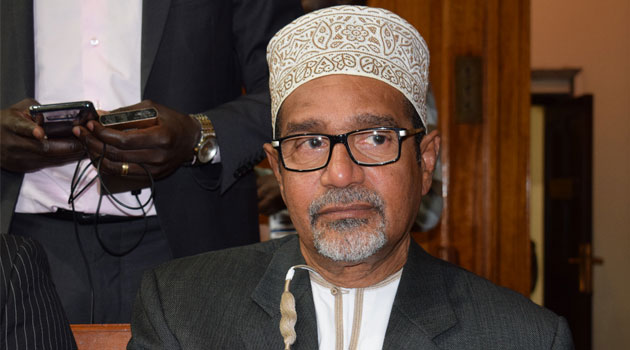The Kenya Human Rights Commission (KHRC) have condemned the unlawful detainment of Muslims for Human Right (MUHURI) Board member Khelef Khalifa at Malindi Police Station.
The Commission on Saturday stated that Khalifa was arrested together with his family in Mida near Malindi by masked police officers despite a recent court ruling out-lawing use of masks by police officers to obscure their identity.
“Police have detained Muslims for Human Right Board member Khelef Khalifa and his family in Mida, near Malindi. Khalifa challenged the officers for hiding their faces when they stopped his car, “said KHCR.
KHRC termed Khalifa’s arrest as unlawful stating that the Human rights Activist life and that of his family is being threatened now demanding his immediate release.
“Khalifa was simply upholding the law, and now his freedom is being threatened. We demand the immediate release of Khalifa and his family. The police must release them immediately,” the Commission noted.
Following rising cases of illegal arrest of people, particularly demonstrators in the recent anti-government protest, High Court Judge Bahati Mwamuye directed the Inspector General of Police to ensure that police officers deployed to contain protest are in their uniforms with name tags affixed in line with standing orders.
Mwamuye directed that police officers must not “in any way hide or obscure their face so as to render them difficult to identify or unidentifiable”.
The judge also ordered the police not to hide the identification, registration or markings of any vehicle while dealing with persons planning on assembling, demonstrating, picketing or petitioning. By Wangeci Purity, Capital News






